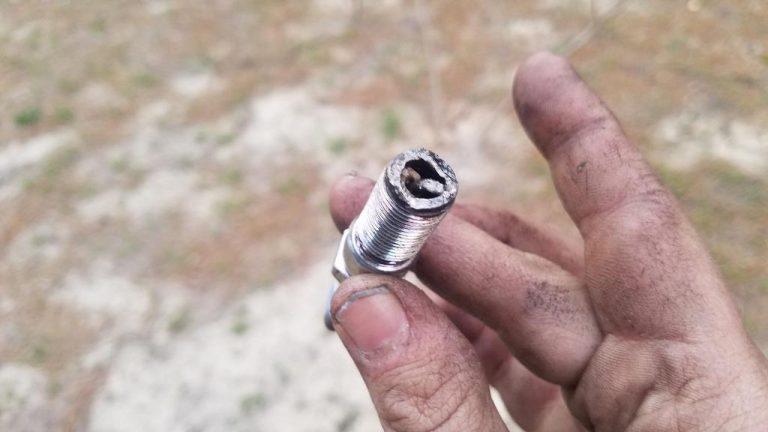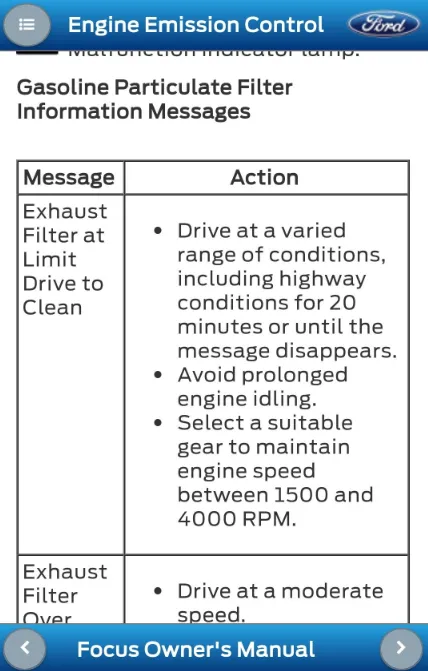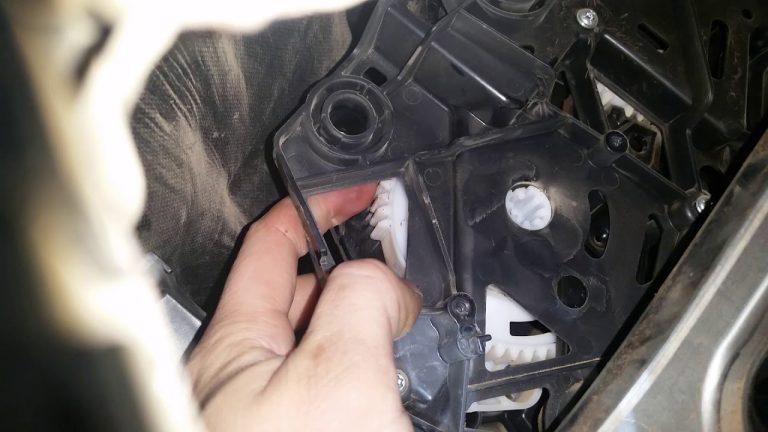How to Tell If Your Clutch Master Cylinder is Bad: 7 Warning Signs
A bad clutch master cylinder often shows signs like difficulty shifting gears and a soft or spongy clutch pedal. Leaking fluid under the car can also be an indication.
The clutch master cylinder is a critical component in your vehicle’s clutch system. It converts the pressure from the clutch pedal into hydraulic pressure to engage and disengage the clutch. Over time, this part can wear out, leading to various symptoms that can affect your driving experience.
Recognizing the early signs of a failing clutch master cylinder is essential for maintaining your vehicle’s performance. Ignoring these signs can lead to more severe issues and costly repairs. Regular maintenance and prompt attention to any irregularities can save you time and money in the long run.
Introduction To Clutch Master Cylinder
The clutch master cylinder is a vital part of your vehicle’s clutch system. It helps transfer pressure from the clutch pedal to the clutch slave cylinder. This allows the clutch to disengage and engage smoothly. Knowing its importance can help in maintaining your vehicle’s health.
Role In Vehicle Operation
The clutch master cylinder plays a key role in vehicle operation. It ensures that the clutch functions properly. Here are some of its primary functions:
- Transmits hydraulic pressure from the clutch pedal.
- Helps engage and disengage the clutch smoothly.
- Contributes to the overall driving experience.
Importance Of Maintenance
Maintaining the clutch master cylinder is crucial for vehicle health. Ignoring it can lead to serious issues. Here are some reasons why maintenance is important:
- Prevents clutch failure.
- Ensures smooth gear shifts.
- Avoids costly repairs.
Regular checks can save you time and money. Always watch for signs of a bad clutch master cylinder.

Credit: m.youtube.com
Difficulty Shifting Gears
One clear sign of a bad clutch master cylinder is difficulty shifting gears. This issue can make driving frustrating. The master cylinder plays a crucial role in gear shifting.
Gear Slippage
Gear slippage happens when the car slips out of gear. This can occur while driving. It is dangerous and needs attention. You may notice the engine revs more than usual.
Hard Shifting
Hard shifting means you struggle to change gears. The gearstick feels stiff. This can indicate a problem with the clutch master cylinder. Hard shifting can also damage other car parts.
Spongy Clutch Pedal
A spongy clutch pedal can signal a bad clutch master cylinder. This component is vital for proper clutch operation. When it malfunctions, you might notice changes in how the clutch feels. Let’s explore the symptoms and causes in detail.
Soft Or Loose Pedal Feel
A soft or loose pedal is a common sign. The clutch pedal may feel mushy or less firm. This indicates a possible hydraulic issue. The master cylinder might not generate enough pressure. This lack of pressure affects clutch performance.
Hydraulic Fluid Issues
Hydraulic fluid plays a crucial role. Low or contaminated fluid can cause a spongy pedal. Check the fluid level in the reservoir. Ensure it is within the recommended range.
Contaminated fluid can also lead to problems. Dirt or air bubbles in the fluid cause erratic behavior. Bleeding the clutch system might solve this issue. Replacing old fluid with new can improve performance.
Leaks in the hydraulic system are another concern. Inspect for any signs of fluid leakage. Leaks can reduce hydraulic pressure, affecting the clutch feel. Repairing leaks can restore proper clutch function.

Credit: www.carparts.com
Low Or Contaminated Fluid
Maintaining a healthy clutch system is crucial for smooth driving. One key aspect to monitor is the fluid in your clutch master cylinder. Low or contaminated fluid can indicate a problem. Let’s explore how to check fluid levels and recognize signs of contamination.
Checking Fluid Levels
Regularly checking the fluid levels is essential. Follow these steps:
- Locate the clutch master cylinder reservoir. It is usually near the brake fluid reservoir.
- Check the fluid level against the “MIN” and “MAX” marks. The fluid should be between these marks.
- If the fluid is low, add the recommended type of fluid. Use a clean funnel to avoid contamination.
Low fluid levels can lead to clutch issues. It may indicate a leak in the system. Ensure the reservoir cap is tightly secured after checking.
Signs Of Contamination
Contaminated fluid can cause severe damage to the clutch system. Look for these signs:
- Discolored Fluid: The fluid should be clear or slightly yellow. Dark or cloudy fluid indicates contamination.
- Debris or Particles: Check for any visible particles or debris in the fluid.
- Unusual Smell: A burnt or unusual smell can signal contamination.
Contaminated fluid can affect clutch performance. It may cause difficulty in shifting gears or a spongy clutch pedal.
If you notice any of these signs, consider flushing and replacing the fluid. Regular maintenance ensures a longer lifespan for your clutch system.
Clutch Pedal Stuck To The Floor
A clutch pedal stuck to the floor can be alarming. This issue often indicates a problem with the clutch master cylinder. Understanding the causes and immediate actions can save time and prevent further damage.
Causes Of Sticking
Several factors can cause the clutch pedal to stick. Here are the most common ones:
- Low Fluid Levels: Insufficient hydraulic fluid can cause the clutch to malfunction.
- Air in the System: Air bubbles in the hydraulic line can disrupt pressure.
- Worn Seals: Seals in the master cylinder may wear out, causing leaks.
- Damaged Master Cylinder: A damaged cylinder can fail to generate enough pressure.
Immediate Actions To Take
If your clutch pedal is stuck, take these steps immediately:
- Check Fluid Levels: Ensure the hydraulic fluid is at the recommended level.
- Inspect for Leaks: Look for fluid leaks around the master and slave cylinders.
- Bleed the System: Remove air bubbles by bleeding the hydraulic system.
- Consult a Mechanic: If the issue persists, seek professional help.
| Symptoms | Possible Cause | Action |
|---|---|---|
| Clutch pedal stuck to the floor | Low fluid levels | Check and refill fluid |
| Clutch pedal feels spongy | Air in the system | Bleed the system |
| Fluid leaks visible | Worn seals | Inspect and replace seals |
| No pressure when pressing the clutch | Damaged master cylinder | Consult a mechanic |
Unusual Noises
Unusual noises are often the first sign of a bad clutch master cylinder. These sounds can indicate various issues within the system. Recognizing these noises early can save you from costly repairs.
Grinding Or Squeaking Sounds
Grinding or squeaking sounds are common indicators of clutch master cylinder problems. When you press the clutch pedal, you may hear these noises. This often means that parts inside the cylinder are worn out.
These sounds can occur due to lack of lubrication. It can also happen if there is excessive wear on the internal components. It’s essential to address these noises quickly. Ignoring them can lead to more severe damage.
Potential Internal Damage
If you hear unusual noises, there could be potential internal damage. This damage might include worn-out seals or damaged internal parts. Internal damage affects the clutch’s performance.
To diagnose this, a mechanic will inspect the cylinder’s internals. They may find broken seals or debris that causes friction. Fixing these issues early can prevent a complete clutch failure.
Listening for unusual noises and acting on them can save you time and money. Keep your clutch system in check to ensure smooth driving.
Fluid Leaks
Fluid leaks are a clear sign of a bad clutch master cylinder. The clutch system relies on fluid to operate smoothly. Leaks can cause problems and signal a failing part. Understanding where leaks come from helps in diagnosing the issue.
Identifying Leaks
To identify a fluid leak, start by checking the fluid reservoir. Look for any damp spots or puddles near the clutch pedal. You might notice a drop in fluid levels. Use a flashlight for better visibility. Leaks often appear as dark stains on the floor.
Common Leak Locations
Common leak locations include the clutch master cylinder itself and connected hoses. Check the cylinder body for cracks or wet areas. Inspect the hose connections for looseness. Look at the clutch slave cylinder for signs of leakage. Leaks can also occur around the clutch pedal area.
| Location | Signs of Leak |
|---|---|
| Clutch Master Cylinder | Cracks, wet spots |
| Hose Connections | Looseness, dampness |
| Clutch Slave Cylinder | Fluid stains |
| Clutch Pedal Area | Wet spots, puddles |

Credit: www.youtube.com
Burning Smell
A burning smell while driving can indicate serious car issues. One possible cause is a faulty clutch master cylinder. Below, we’ll explore the causes of a burning odor and how it links to master cylinder issues.
Causes Of Burning Odor
A burning smell can arise from several sources in your car:
- Overheated Clutch: This happens if the clutch is slipping or worn out.
- Friction: Excessive friction can create a burning odor.
- Leaking Fluids: Leaking oil or brake fluid can cause a smell when heated.
These causes can indicate a deeper problem. Understanding these can help diagnose the issue.
Link To Master Cylinder Issues
A burning smell can indicate a bad clutch master cylinder:
- Fluid Leaks: If the master cylinder leaks, it can create a burning smell.
- Reduced Pressure: Low pressure from a faulty cylinder can cause the clutch to overheat.
- Worn Components: A bad master cylinder can wear out the clutch faster.
These signs suggest the master cylinder needs checking or replacing.
Frequently Asked Questions
What Are The Symptoms Of A Faulty Clutch Master Cylinder?
A faulty clutch master cylinder can cause difficulty in shifting gears, a spongy clutch pedal, fluid leaks, and reduced clutch performance.
How Do You Check A Clutch Master Cylinder?
Check for leaks around the master cylinder. Test pedal pressure. Inspect fluid level and clarity. Ensure smooth pedal movement.
What Are The Symptoms Of A Bad Master Cylinder?
Symptoms of a bad master cylinder include spongy brake pedal, leaking brake fluid, and decreased braking power. You may also experience brake warning lights and uneven brake pad wear.
Can A Clutch Master Cylinder Be Bad Without Leaking?
Yes, a clutch master cylinder can be bad without leaking. Symptoms include difficulty shifting gears and a spongy clutch pedal.
Conclusion
Identifying a faulty clutch master cylinder is crucial for vehicle safety. Watch for fluid leaks, unusual pedal behavior, and shifting issues. Regular maintenance can prevent severe damage. Stay proactive and consult a professional if you notice any signs. Keeping your clutch system in top condition ensures a smoother driving experience.





